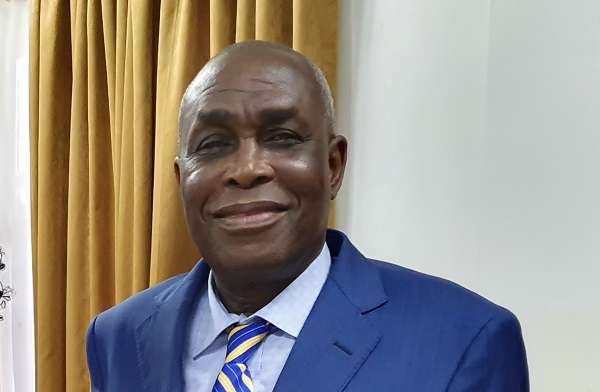Labour expert, Austin Gamey, has expressed misgivings about findings by the Ghana Statistical Service (GSS) on gender pay gap in the country.
According to him, the findings by the Ghana Statistical Service which recorded women being paid less than their male counterparts, might be “good enough but not representative” of the reality on the ground.
He revealed that having worked for a number of companies both in private and public sector, salary structure is a uniform structure and therefore, “job evaluations are carried out, job analysis is made, people’s job worth is determined” and placed on the ranges where they belong.
Marking International Pay Day today, September 18, 2023, Mr Gamey explained that the entry point is the only requirement from the “beginning” for both genders. However, he noted that going forward, in the private sector for instance, salaries are based on one’s level of productivity.
“So, I am highly troubled and amazed about the kind of information being placed in the public domain vis-a-vis let’s take the public sector as an example – [10.5%] less than that of the men. It means the whole government machinery is being called into some kind of disorder…
“I’ll go into finding out these things also and I think that it is not entirely correct because they lack clarification to the numbers that they have assigned for us to talk about…”
Austin Gamey
Per GSS’s comparison of sectors of employment, the gender wage gap for the private formal sector was a wage gap of 29.9%, whereas that of the public sector was 10.5%.
Reacting to this, Mr Gamey insisted that GSS has not done the “public a lot of good”.
Justifying his stance, he revealed that a trained college teacher, a degree-holding teacher and PhD- holder teacher are placed on the same salary structure regardless of the gender.
“If you enter today, and you are placed on level 21, and you’re [paid] GHC4,500, so it is for a woman and a man – whether private sector or public sector, entry point is what is required based on your qualification, not necessarily experience but the criteria that you meet.
“I think that what they [GSS] have done is okay but they need to ventilate on their findings further with footnotes, telling us the story about why they are being paid less than the men…”
Austin Gamey
Bridging gender pay gap
Touching on how to bridge gender pay gap, the labour expert emphasized the need to first drop the perception about gender pay gap because there is a scientific criterion that is used in determining people’s job worth by way of job evaluation.
Among other things, he indicated that the analysis to ensure that the job spread cuts across in a manner that is appropriate to make the organization viable and productive is one of the motivation for salaries given to employees.
In light of this, he noted that if steps are not taken to “ventilate on these issues properly”, merely talking about it may be in the realm of speculations.
“The reality however is that gaps will always be there, and it could be females earning more than men in terms of the gap. Their job worth and value and premium being placed on them by the employer fits the purpose of that lady that is in that organization and not the male- it’s about job worth, not personality.
“I think something ought to be done and I concede the Ghana Statistical Service people biased but if it comes to determining a certain criterion, vis-a-vis job worth, evaluation and analysis, it’s more in the domain of experts who they are necessarily into that field.”
Austin Gamey
The Ghana Statistical Service has revealed that among paid workers in the country, women earn 34.2 per cent less than men.
This data, GSS noted, is from the first quarter of the 2022 Annual Household Income and Expenditure Survey (AHIES).
In a press statement released to celebrate International Equal Pay Day, GSS stated that “the gender wage gap is lowest among paid workers with tertiary education or more where women earn 12.7 per cent less than their male counterparts”
Moreover, it noted that the wage gap is highest among workers with basic education (60.1%) followed by workers with no education (54.0%).
READ ALSO: Criminologist Insists Military Regimes Are Not The Solution To Issues In Africa





















